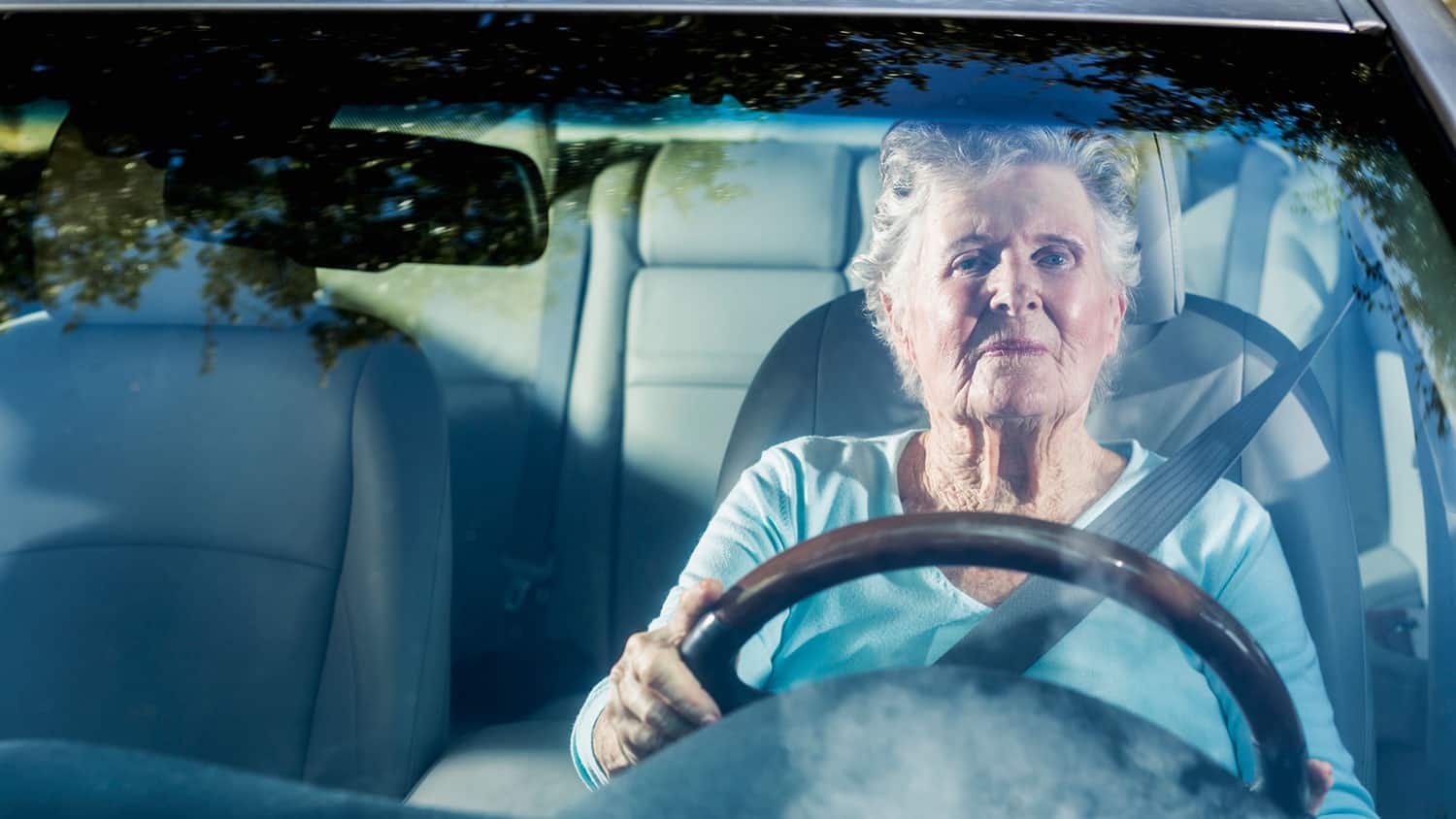When do you think it is appropriate to ask an elderly parent to stop driving? Have you had to convince a senior to stop driving? Please join the conversation below and share your advice.

4 Tips to Convince an Elderly Parent to Stop Driving
What do you do when your elderly parent is no longer a safe driver?
How to get an elderly person to stop driving is a top concern among caregivers. If you’ve discovered that your parent or someone close to you is no longer a safe driver, talking to them about giving up the car keys is one of the most difficult conversations to have. But it is one that’s extremely important.
If your elderly parent is no longer safe behind the wheel, they could hurt themselves or other innocent people, even children. It’s better to have these conversations before an accident happens.
We’ve got 4 tips to soften the blow and make the discussion more successful. Understanding why they’re so resistant to giving up driving will also make a difference when you talk with them.
So why elderly adults resist giving up their car keys?
Many older adults get offended, defensive, or angry when asked to stop driving. That’s because driving is a major symbol of independence and control.
Your parent is already dealing with loss of control over their health, so asking them to give up driving will be yet another blow to their self-esteem. Plus, being asked to stop driving probably makes your older adult feel trapped. This is especially true if they live in a suburb or are used to having complete freedom.
This conversation will be tough and you’ll probably feel like the bad guy. Even though you may feel guilty, please know that you’re absolutely doing the right thing. Convincing an elderly to stop driving is for their own safety as well as the general public’s safety. They will forgive you, but it may take some time. They may never admit it, but deep down, they know this is necessary.
Here are 4 tips for having a successful conversation with an elderly parent about their driving.
Discreetly Prepare a List of Observations About Their Driving Ability
The first thing to do is make a list of reasons why your older adult is no longer a safe driver. Take a casual ride with them to a familiar location, like the grocery store, and see if you notice key warning signs of unsafe driving. Write down anything that concerns you.
The signs of unsafe driving that you see can become part of the conversation and will help you explain why you’re concerned about their safety. Having it down on paper means that you won’t forget an important point in the heat of the moment.
Come Up with Alternative Transportation Options
Whether they can drive or not, your older adult will still have places to go and errands to run. Staying connected with friends and active in the community is essential for preventing the negative effects of social isolation.
Reduce their resistance to giving up driving by helping your elderly parent cope with the loss of freedom. A list of realistic transportation options will assure them that they’ll still be able to do their normal activities.
Here are some ideas:
- Arrange a ride schedule with family and friends
- Use on-demand ride services like Uber or Lyft
- Take taxis
- Hire a private car service for several hours each week
- Take public transportation
- Get rides from volunteer drivers from senior centers or religious and community service organizations
- Take advantage of free or low-cost ride programs for seniors
Approach the Subject Respectfully
When you have the conversation about giving up the keys, the most important thing is to be respectful and acknowledge that this is difficult for them.
You might start off by saying “I know this must be a sensitive subject, but we need to talk about your driving.” Then, share a few specific concerns in a kind way. Emphasize that you’re not accusing them of being a bad driver. Instead, focus on their health conditions or other aging-related issues that make their driving unsafe.
Give them Time to Accept the Changes
Convincing an elderly parent to stop driving means asking them to make a major change. This can significantly affect their quality of life so it’s understandable that they may get upset.
Be understanding and give them time to accept the changes and space to work through their feelings. Because it’s such a big adjustment, it may take more than one conversation before they’re ready to give up the car keys.






